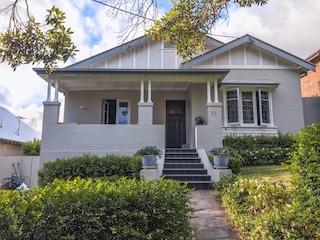Mango Hill suburb profile
Mango Hill is a rapidly growing suburb located in the Moreton Bay Region, approximately 25km north of Brisbane's CBD. Known for its family-friendly atmosphere, it offers a mix of modern housing developments and green spaces. The suburb is well-served by public transport, including the Mango Hill train station, providing easy access to Brisbane and surrounding areas. Mango Hill is home to a variety of amenities, including shopping centres, schools, and recreational facilities, making it an attractive destination for families and professionals. Its blend of suburban tranquility and urban convenience continues to draw new residents seeking a balanced lifestyle.
Mango Hill property market performance
Current median dwelling price$867,500Past 3 months
Property growth+16.6%Past 12 months
Mango Hill’s property market has experienced robust growth over the past 12 months, with house values increasing by 13% and unit values surging by 20.2%. The median house price has averaged $1.03 million, while units have averaged $710,000, indicating strong demand across both property types.
Sales activity has been active, with 58 houses and 15 units sold in the past 12 months. Houses are selling quickly, with a median of just 15 days on the market, compared to 24 days for units, suggesting a brisk pace in the housing sector.
The rental market in Mango Hill has also seen upward movement, with average rents for houses increasing by 4% and units by 5.1% over the last 12 months, reflecting a healthy demand for rental properties in the area.
| Houses | Units | |
|---|---|---|
Median price Past 3 months | $1.02M | $710K |
Change in value Past 12 months | 13.0% | 20.2% |
Sold Past 3 months | 58 | 15 |
Median days on market Past 12 months | 15 | 24 |
Average rent Past 12 months | $650 | $520 |
Change in rent Past 12 months | 4.0% | 5.1% |
5 year median price trend for houses and units
Mango Hill demographics
Mango Hill, located in the Moreton Bay Region of Queensland, is a rapidly growing suburb known for its family-friendly environment and modern amenities. With a population of 14,921 and a median age of 31, it attracts young families and professionals seeking a suburban lifestyle with easy access to Brisbane. The suburb's proximity to the city, combined with its community-focused atmosphere, makes it an appealing choice for those looking to balance work and family life.
The housing landscape in Mango Hill is diverse, with a significant portion of properties being rented, accounting for 46.8% of the market. This high rental rate indicates a demand for flexible living arrangements, appealing to both young families and professionals. Additionally, 43.2% of properties are owned with a mortgage, reflecting a strong presence of new homeowners and growing families investing in the area. The suburb's family-oriented nature is further highlighted by the fact that 56.1% of families are couples with children, underscoring its appeal to those seeking a supportive community environment.
Mango Hill's economic profile is robust, with a median total household income of $2,145 per week, indicating a relatively affluent community. The suburb's infrastructure, including schools, parks, and shopping centers, supports a high quality of life, making it an attractive destination for those looking to settle in a vibrant and well-connected area. As Mango Hill continues to develop, it remains a sought-after location for families and individuals seeking a blend of suburban tranquility and urban convenience.
Mango Hill infrastructure, key developments and investment opportunities
Mango Hill is experiencing significant growth and development, enhancing its appeal for property buyers. The suburb has seen substantial population growth, increasing from 8,434 in 2016 to 14,921 in 2021, indicating strong demand for housing in the area. The recent opening of Mango Hill State Secondary College in 2020 has improved local education options, potentially attracting more families to the suburb.
Infrastructure improvements, including two train stations (Mango Hill and Mango Hill East) opened in 2016, have enhanced connectivity and commuter access. The proximity to major retail centers like Westfield North Lakes, IKEA, and Costco adds to the suburb's convenience. Additionally, the upcoming Bruce Highway upgrade is expected to further improve accessibility and potentially increase property values. With its mix of modern amenities, green spaces, and family-friendly atmosphere, Mango Hill is positioning itself as an attractive option for homebuyers in the Moreton Bay region.
Mango Hill rental market trends
The rental market in Mango Hill has experienced moderate growth, with house rents increasing by 4.0% over the past year to $650 per week, while unit rents have risen by 5.1% to $520 per week. This steady growth reflects the suburb's appeal, driven by its family-friendly environment and proximity to key amenities, making it an attractive option for both renters and investors.
Suburbs near Mango Hill
Some popular suburbs near Mango Hill include:
How does Mango Hill compare to nearby suburbs?
- Median house prices: Mango Hill’s median house price is 2.0% higher than North Lakes’s.
- House price growth: Over the past 12 months, house prices in Mango Hill have grown 2.9% higher than in North Lakes.
- Unit price growth: Over the past 12 months, unit prices in Mango Hill have grown 2.9% higher than in Griffin.
- Selling speed for houses: Properties in Mango Hill are selling 6.3% faster than in North Lakes.
- Selling speed for units: Properties in nearby North Lakes are selling 66.7% faster than in Mango Hill.
- Investment considerations: In Mango Hill, the rental yield for house is 5.7% lower than the Brisbane average, while the rental yield for units is 18.0% lower.
- House price growth: Over the past 12 months, house prices in Mango Hill have grown 18.5% lower than the average rate of growth across Brisbane.
- Unit price growth:Over the past 12 months, unit prices in Mango Hill have grown 3.8% lower than the average rate of growth for units across Brisbane.

